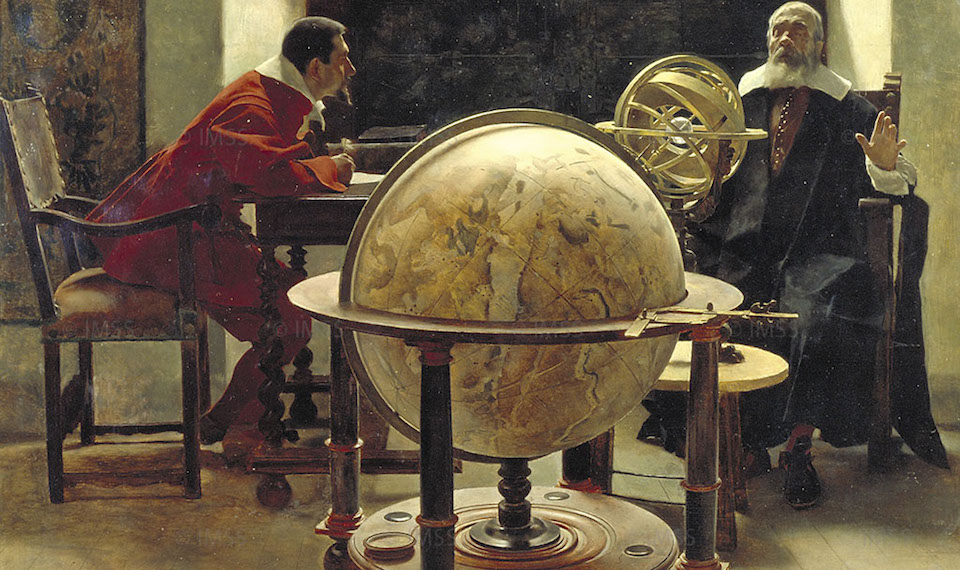
It is important that we make a distinction between Islam as a set of teachings, values, principles and legislations and between the reality of Muslims in the past and in the present. Islam – as a set of rituals and beliefs – has continued to be conscientiously practised, whereas in the teachings of Islam the affairs of this world (dunyā) have not been fully inculcated. [1]
WHAT ILLUSTRATES THIS best is that despite the fact that politics and political governance constitute some of our most pressing and crucial concerns, they have not attracted the attention of our scholars, who instead have left us devoid of a tradition of political thought. This is in sharp contradistinction to Greek civilisation of the 5th century BC which, in the fields political thought and its connection with ethics and worldly affairs, achieved things which still excite admiration and wonder. Our scholars meanwhile have yet to achieve anything in this most important issue of worldly affairs; we would be hard put to say that that they have accomplished anything of significance in this or in how one might promote either private or common wealth or make good use of things and release latent energies.
Our scholars have left us devoid of a tradition of political thought
The scholars of Islam were concerned with rulings referring to dealings, and with all mundane matters, for the purpose of making these conform to the Sharīʻa. Indeed they laid stress on the importance of worldly affairs being conducted in security, fairness and justice; but this interest of theirs was simply part of their preoccupation with religion and was not for the sake of the dunyā per se. It is important to understand the qualitative difference between, on the one hand, a concern to regulate worldly affairs according to the religious law and, on the other hand, activities geared to temporary concerns and to offering up ideas for developing the means to make a living and open up minds to the huge, latent potential in things. These scholars were preoccupied with making reality conform to the teachings of Islam and were not interested in growth or the development of reality. The difference here is a qualitative difference.
Our heritage is replete with expressions of disdain for anyone occupying oneself with worldly affairs or taking an interest in them. For example, in his treatise Degrees of Knowledge, Ibn Hazm holds that he who occupies himself in anything other than the sciences of the Sharīʻa is someone who has become foolish, shortsighted and oppressive to his own self:
His primary interest should be a knowledge of what is it that brought him into this world and whither he will go when he exits; if he remains in ignorance of the Sharīʻa and occupies himself with other things he has become shortsighted and is merely unjust to himself.
Such expressions are by no means exceptional; traditional writings are stuffed with similar sentiments. Even Ibn Khaldūn, who was possessed of a brilliant mind, ridiculed those who occupied themselves with philosophy and experimental sciences such as chemistry – which he considered to be merely a form of sorcery.[2]
Scholars were preoccupied with making reality conform to the teachings of Islam and were not interested in growth
Scholars and philosophers like Ibn al-Haytham, al-Hazen, Jābir ibn Hayyān, Ibn Sīnā, al-Fārābī, al-Kindī, Ibn Rushd and others were brilliant individuals who, whilst living in an Arab environment, actually lay outside the prevailing Arab cultural norms intellectually. For studying Greek thought they were disdainfully referred to as ‘weeds,’ so that their fields of interest could be dismissed. That is, the prevailing culture considered them to be harmful plants sprouting up amid useful crops. I have read dozens of their works and found them all to be students of Greek thought. Moreover, they were scattered individuals here and there, who did not come together to constitute a trend in society; each of these individuals was a product of his own self and not the product of a school of thought perpetuating earlier voices or continuing on after them. Indeed, they sounded a dissident note from the prevailing culture. This is something that is abundantly clear; those who vaunt the superiority of the Arabs over the West confirm this fact. Objectivity therefore demands that we confirm that some Arab original thinkers may be commended for their having participated in awakening the European mind towards the close of the Middle Ages – at the forefront of these one may mention Ibn Rushd, al-Kindī, al-Rāzī, Ibn al-Haytham, Ibn al-Nafīs, al-Fārābī, Ibn Sīnā, Jābir ibn Hayyān. These and other geniuses like them the Arab environment looked down upon, while the European environment celebrated them. For during its decadent eras Europe understood, are still does understand, the value of these individuals’ creative thinking whereas we – even in our flourishing eras – dismissed their ideas and prevented their circulation. In fact we strangled originality, persecuted the original thinkers and burned their books!
How can we then boast of that which was once, and still is, rejected by us?
So when we boast of our superiority over Western civilisation we are ignoring the fact that this superiority amounts to no more than Europe benefiting from individuals such as Ibn Rushd, Ibn al-Haytham and al-Rāzī, scholars who had studied Greek thought and were therefore not the product of Arab culture. At the same time we ignore the fact that in our culture those individuals were rejected by us and are subject to continuing condemnation and aversion – not just in the past but even today; for we still express our condemnation of them and ban their thinking. We burned their books and we still prohibit the reading of them. How can we then boast of that which was once, and still is, rejected by us?
Attempts at enlightenment led to the marshalling of the nation against reason
One fearful points of difference that itself would justify an objective, profound study and a precise analysis, is the fact that every attempt – past and present – to increase the role of reason and science in our cultural, social and political life has led to contrary results. Hatred for reason has become more prevalent and the antipathy has only accumulated over generations on account of the fact that rational orientations were never accepted and their activities halted. Their exponents vanished from the scene and their works became scattered, so that generations no longer had any knowledge of them other than via the voices of their opponents and detractors. Despite the disappearance of the rational movement, the opponents of rationality nevertheless continue to issue warnings against reason and demonise those who display rationalist tendencies. As a result of this suppression of rationalist thought the writings of rational thinkers disappeared and fell out of circulation. As a result of the centuries-long indiscriminate war waged against them they almost vanished permanently. When some of them were rediscovered, interest was confined to a few individuals, academics and researchers, whereas works opposing or outright warring against rationality continued to enjoy wide circulation – to the point of becoming the most important ingredient of our culture and education. These anti-rationalism works were, and still are, taught at every stage in our educational system with the result that generations have been programmed to be hostile to reason and to fear rational thought.
My advocacy of rational thought is not an absolute, for it is after all a human endeavour subject to error, failings, bias and other natural concomitants of human activity. But these endeavours have been so subjected to ferocious attacks that generations have been led to think of them as a form of pure evil; they have focused their vision entirely upon their negative aspects passing over entirely their positive side. It is for this reason that the Muslim nation has absorbed the ‘necessity’ to isolate itself, has nurtured delusions as to its own perfection, and sanctified self-sufficiency.
The emotions of the entire Muslim Nation have been conscripted against reason
The greatest catastrophe to befall Islam and the Muslims is the catastrophe that has conscripted the Nation against reason from our earliest history. The consummate refusal of rationality and the war against enlightenment has locked all doors and windows against any attempts at illumination. The problem is not merely a war against Ibn Rushd and the burning of his books, nor is it merely the expulsion of other prominent proponents of reason; throughout Arab Islamic history the problem has built up an entire culture at odds with reason and attacking rationality. Our culture has ended up stamped with this mustering against reason – not only lining up against specialists but inducing all students to hate rationality, fear thinking and imagine that this is what the Islamic religion demands of them. The emotions of the entire Muslim Nation have been conscripted against reason. It is directed not against the Muʽtazila school or any specific sects and tendencies that establish the role of reason in the interests of religion and of mundane affairs, rather it is directed against the rationalist orientation in toto, down to its last detail. Generations have now been raised abhorring reason, wary of thinking, fearful of rationality, harbouring hatred against rational thinkers and warring against them.

Suggested Reading
It is important, therefore, that we do not content ourselves with saying that Arab culture has rejected its thinkers who have failed to meet with a response. Rather, we should keep in mind always that attempts at rationality have borne contrary results to those intended. Instead of disdaining the capacity of reason to serve the faith and develop our dunyā, the opponents of reason have ganged up together to ridicule it. Libraries are stuffed with works dedicated to this mockery, works which now constitute the authorities consulted by generations for knowledge and intellectual orientation. We have now become fully immersed in anti-reason hostility – and this is something that could do with some deep, comprehensive, objective study, to determine the contrary effects that rationalist movements have spawned.
[1] The article is in the form of an interview taken with permission from I. Buleihi, حصون التخلف (Castles of Backwardness) Al-Jamal Publications (Beirut 2010), pp.246-51.
[2] Ibn Khaldūn (1332-1406) is famous for his groundbreaking work on the sociology of history, contained in his Muqaddima (‘Introduction’) to his history. In Section 13, On the Various Kinds of Intellectual Sciences, makes this interesting observation: “We hear now that the philosophical sciences are greatly cultivated in the land of Rome and long the adjacent northern shore of the country of the European Christians. They are said to be studied there again and to be taught in numerous classes. Existing systematic expositions of them are said to be comprehensive, the people who know them numerous, and the students of them very many. God knows better what exists there.” However, he goes on to express his disdain: “But we must refrain from studying these things, since such (restraint) falls under (the duty of) the Muslim not to do what does not concern him. The problems of physics are of no importance for us in our religious affairs or our livelihoods. Therefore, we must leave them alone.” (Ed.)


